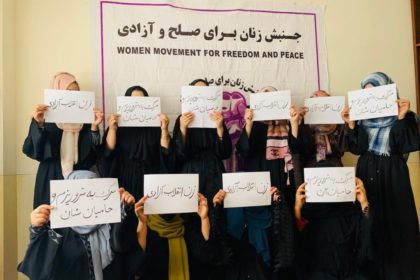RASC News Agency: In a case emblematic of growing frustration among displaced Afghanistanis, a family currently stranded in Pakistan has filed a legal complaint against the German Foreign Ministry in Berlin’s Administrative Court. The lawsuit challenges Berlin’s abrupt policy shifts that have left thousands of at-risk Afghanistanis in prolonged limbo despite formal commitments made under Germany’s humanitarian relocation program. The plaintiffs, a 14-member family led by a woman identified by the pseudonym Aisha, say they were promised safe passage to Germany following the fall of Kabul in 2021. Aisha, a former academic and writer with a well-documented history of collaboration with German civil society actors and international NGOs, had received confirmation from Germany’s Federal Office for Migration and Refugees (BAMF) in October 2023 that her entire family had been approved for resettlement. The family fled to Pakistan shortly after the Taliban’s return to power, fearing reprisals for their past affiliations.
Yet despite receiving official approval and completing all required security screenings and interviews, the family has now been waiting more than 18 months for visa appointments without any clarity from German authorities. According to their legal filing, repeated attempts to secure a consular appointment in Islamabad were met with silence, bureaucratic stonewalling, or vague responses, even as their legal status in Pakistan deteriorated. Now facing the risk of deportation from Pakistan where their visas have expired the family has turned to the German judiciary, accusing the Foreign Ministry of violating constitutional and international obligations. “This is not just administrative delay it is a breach of basic rights,” Aisha told Germany’s ARD television network in a recent interview. “Germany made promises that saved our lives, and now those promises are being erased with silence.”
The family’s legal representatives argue that Berlin’s inaction constitutes a violation of Article 1 of Germany’s Basic Law, which guarantees the inviolability of human dignity, as well as the European Convention on Human Rights, which protects the right to asylum and family unity. They further allege that the German state has failed to uphold its responsibilities under its Federal Admission Programme for Afghans at Risk, which was launched in response to the Taliban’s return to power. Compounding the problem is Germany’s lack of diplomatic relations with the Taliban regime. As a result, Afghanistani applicants must rely on consular services in third countries, primarily Pakistan. However, the worsening political climate in Pakistan marked by mass deportations of undocumented migrants and rising hostility toward Afghanistani refugees has created a volatile environment for vulnerable families like Aisha’s.
According to German media reports, at least 2,500 other Afghanistanis remain stranded in Pakistan under similar circumstances, having received preliminary or full approval from German authorities but left in bureaucratic limbo. Many of them face imminent deportation, lack access to healthcare, and live under constant fear of being returned to Taliban-controlled Afghanistan a return that could mean imprisonment, persecution, or worse. These developments coincide with a broader tightening of Germany’s asylum policies under Chancellor Friedrich Merz, whose administration has made migration control a cornerstone of its political agenda. Merz has imposed stricter border policies, accelerated deportations, and publicly expressed his intention to phase out the Afghanistani relocation program altogether. Human rights organizations, legal experts, and EU officials have expressed alarm, warning that such actions may contravene both domestic asylum law and binding European human rights commitments.
The Berlin Administrative Court has not yet issued a ruling, but the case is being closely watched by legal observers and humanitarian groups across Europe. A decision in favor of the plaintiffs could compel the German government to not only expedite pending cases but also reassess its obligations to those it once vowed to protect. For Aisha, the stakes are deeply personal. “I worked alongside German partners in building a better Afghanistan,” she said. “We believed in democracy, in women’s rights, in education. Now we are forgotten, left in a foreign country without protection, without answers, without justice.” Her case, now before the courts, may yet force Germany to reckon with the moral and legal weight of promises made and promises broken.






